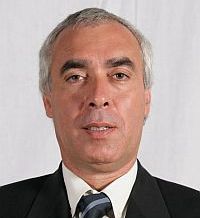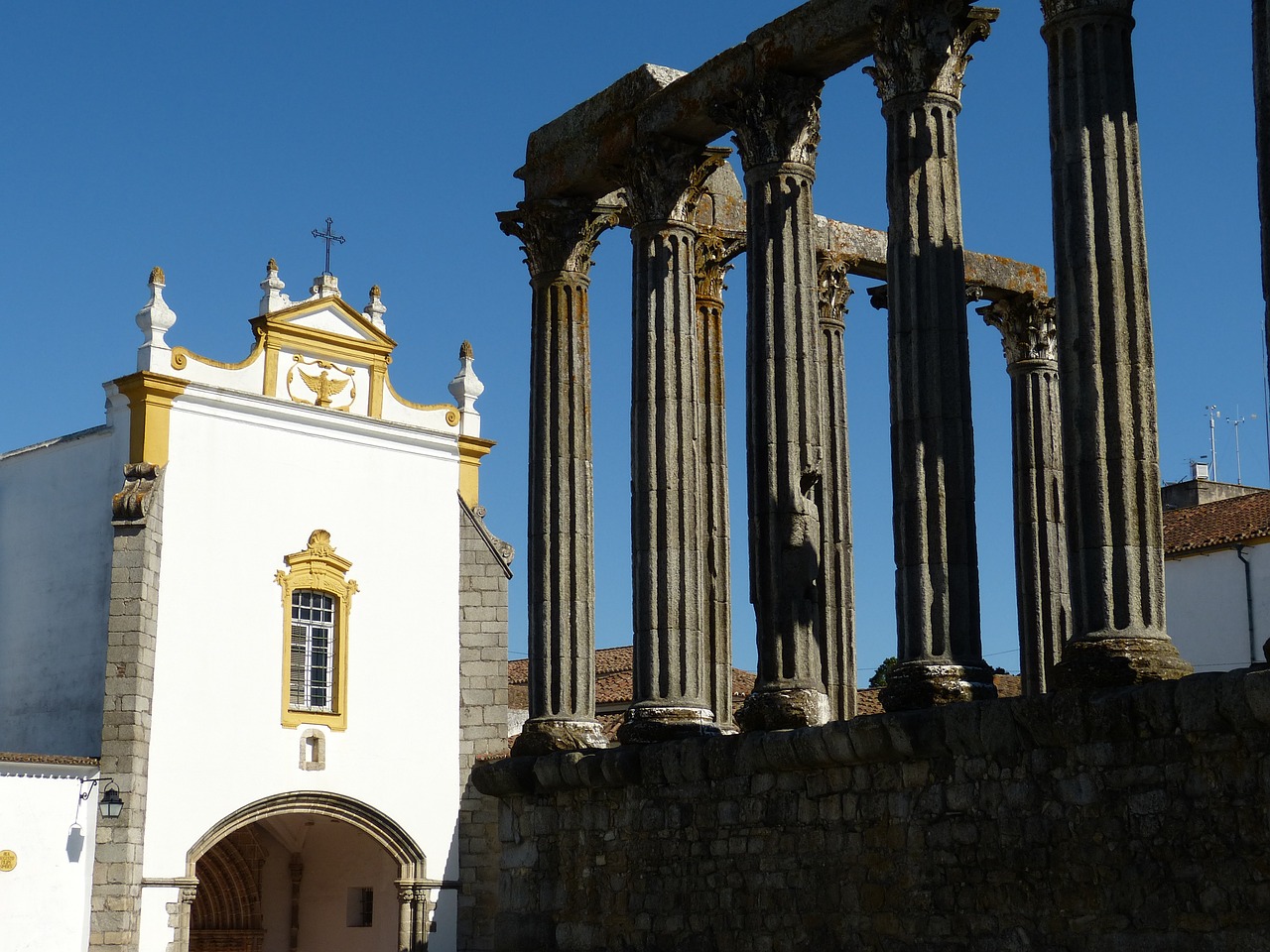02 Dec 2021 — Évora's Mayor, Carlos Pinto de Sá, reflects on the expectations, challenges and vision for Évora in its path towards the energy transition

How will the smart city project POCITYF transform Évora? Can you explain the main impacts that you expect from the implementation of the project?
With POCITYF, for the city of Évora, the great challenges are increasing the penetration of Renewable Energy Sources (RES), increasing energy efficiency and self-consumption of buildings, especially in the historic city center, and increasing the adoption of Electric Vehicles (EVs).
The demonstration activities of POCITYF in Évora will take place in three Positive Energy Blocks: 1) Évora city centre, 2) Aldeia de Valverde and 3) Industrial and commercial park of Évora. Each presents challenges and opportunities for achieving positive global annual energy performance. The Historic Center of Évora, a World Heritage Site, represents the main challenge with the implementation of innovative solutions and at the same time ensuring the preservation of the facades and roofs of the buildings, taking into account a more sustainable future. With POCITYF, we hope that Évora can be an example of how it is possible to overcome these challenges for many European cities with a strong historical heritage.
From your point of view which is the most innovative solution that will be implemented in Évora?
POCITYF will implement in Évora a considerable number of different innovative solutions. A few examples: Renewable Energy Communities; P2P energy trading platform; Flexibility Control Algorithms; 2nd Life Batteries; EV Charger prototype with PV integration; Bidirectional smart inverters for EV smart charging and V2G; Smart Lamp posts with EV charging and 5G functionalities etc.
All solutions are important, but the most interesting solutions for Évora are the ones regarding the implementation of renewable energies produced locally in the historic centre. Within the scope of the project, different photovoltaic solutions integrated in municipal buildings will be implemented, which meet the restrict specificities of each building, such as photovoltaic glass, photovoltaic skylights, photovoltaic roofs and traditional photovoltaic tiles.
POCITYF photovoltaic solutions will integrate a self-consumption community consisting of producer and consumer buildings, where it will be possible to test new innovative models of energy distribution, in a variable coefficient, depending on the energy produced locally and instantaneous consumption needs per building.
We are also developing a community solar farm (on the outskirts of the city) that will serve the historic center. It will allow houses in the historic center that have no chance of installing photovoltaic solutions to have a part of the self-consumption of the energy produced in the community solar farm.
We will also have a public platform in place that will allow and facilitate the direct exchange of energy between producers and consumers and which will serve as the basis for a sustainable energy community extended to the entire population.
This project is a very important opportunity, as POCITYF’s solutions aim to allow the city and in particular the Historic Center to actively participate in the urgent energy transition.
What are the major challenges for a historical city aiming to become a smart city?
The Historic Center of Évora, being an UNESCO World Heritage Site, entails significant restrictions in terms of deploying solutions that alter the facades and even the roofs of the buildings, which turns out to be a considerable barrier between today’s energetic landscape and a sustainable greener future.
The Historic Center of Évora raises the added challenge of the solutions being able to preserve the city’s cultural heritage. In fact, all buildings are protected and subject to very strict rules. The installation of innovative solutions must guarantee the preservation of the buildings’ heritage value. Therefore, all works on facades and roofs, in principle, must ensure that the original layout and materials are preserved.
The strict rules of the National Authority for Cultural Heritage (DRC) and from the Municipality of Évora, led us to a more exhaustive analysis and adjustments in relation to the solutions initially envisaged.
As an example, standard commercial photovoltaic panels are not allowed in the historic center of Évora. With POCITYF, special integrated photovoltaic solutions will be installed in municipal buildings, and will be a first step and serve as the basis for future photovoltaic installations in buildings in the historic center.
How will citizens be involved in the whole smart transformation process: from the co-designing of the solutions to their implementation?
Involving the population is fundamental. The population of Évora has been involved, for the installation of POCITYF solutions in 11 private homes and in the definition of solutions to be installed in schools. The citizens were also involved with POCITYF in webinars and workshops. We are preparing co-creation workshops and we will run a contest for open innovation challenges. We will invite communities of citizens, such as students and stakeholders, to participate in specific smart city discussions and challenges such as positive energy solutions in cultural heritage buildings, smart city services, etc.
What have you learned after two years as part of POCITYF?
In this first period of the project, involving partners, population, local agents and local and national authorities, we worked hard with the necessary responsibility and importance to find the best solutions and overcome barriers and restrictions in implementing the project in Évora. From the beginning we knew that the work was not going to be easy and the path, despite the hard work required for a project of this scale, was not going to be easy.
What is the long-term vision for Évora in terms of sustainability and how do you intend to use POCITYF solutions (after project conclusion) to attain that vision?
Évora’s municipal administration considers that the environmental issue has a great political priority. In fact, Évora’s was one of the first Portuguese municipalities to develop a municipal strategy to adjust to climate change.
The great financial constraint to which the Municipality is subject and the substantial increase in energy costs, in addition to environmental issues, reinforce the need to adopt measures that make energy consumption more efficient. In this context, POCITYF is a project that integrates actions aimed at reducing greenhouse gas emissions, but also actions that, without affecting these emissions, optimize the financial aspects of energy acquisition and use, enabling the release of resources to other areas. The sectors of buildings and transport are included, distinguishing actions aimed at the municipality’s population and actions exclusively dedicated to municipal heritage.
The commitment with the POCITYF project is in line with the strategy and commitments that the municipality of Évora has outlined to face climate changes and ensure the territory’s environmental sustainability. POCITYF is an ongoing international project of great importance, in which Évora plays one of the biggest roles, among other ongoing projects in the municipality, of different natures and magnitudes, focused on climate change and the theme of environmental sustainability.
How have the sustainability plans of your city been impacted by the COVID-19 pandemic?
The Municipality of Évora considers the environmental issue to be of greater relevance, alongside with the pandemic crisis fight. In fact, the current slogan of the Municipality’s activity is: “fight the pandemic crisis, act for a better environment, promote a sustainable Municipality”.
The pandemic had a major impact on the conduct of municipal activities and the sustainability plans were also affected. Due to restrictions by the government and the national health authority in combating the pandemic, many of the ongoing works were delayed and hampered. The POCITYF project, unfortunately, was no exception and delays resulting from pandemic restrictions were unavoidable. All activities and face-to-face meetings were suspended or limited. On the other hand, POCITYF partners who develop the technological solutions to be implemented also saw their plans affected due to delays in required materials and components. In any case, as a team, we did everything to overcome the difficulties caused by the pandemic and kept all the work going, essentially using online meetings.
